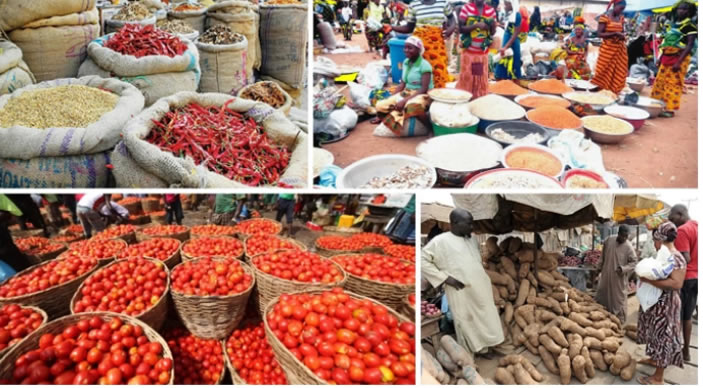10 ways to ensure safe and healthy foods for family during economic hardship

Nigeria is currently grappling with a significant economic downturn characterised by spiraling inflation which has significantly impacted the purchasing power of Nigerians.
The economic hardship has made it tough for many families to provide healthy food for their loved ones with protests against hunger now a constant news item in recent times.
However, with some planning, resourcefulness, and creativity, you can provide healthy meals without breaking the bank. Here are 10 ways to help you navigate these difficult times:
- Planning and prioritisation: This is the period to plan meals. It helps you avoid impulse purchases and food waste. You can also create a tracker to understand your baseline and set a limit you can comfortably stick to.
- Be friends with your local farmers’ market: Look for deals at the end of the day and consider “ugly” produce that’s perfectly edible. Seasonal options are often cheaper and fresher. You can also join a buying group to purchase larger quantities of seasonal produce at wholesale prices, benefiting from economies of scale.
- Master one-pot meals: “One-pot” meals like jollof rice, beans, and plantain, or yam pottage are affordable, filling, and packed with nutrients. Cook them more.
- No to leftovers: Transform leftover food into other delicacies. Leftover rice could be transformed into fried rice while leftover vegetables can be used in soups.
- Shop smart: Instead of shopping from one place, you can compare prices across different markets to find the best deals. You can also explore options like buying directly from local farmers or patronising smaller stores that may offer competitive prices.
- Maximize savings: Learn effective storage techniques for different food items to extend their shelf life and prevent spoilage. To avoid wastage, cook only what you can consume at once.
- Grow your food: You can also some food like vegetables, and even peppers on your balcony for a constant supply of fresh produce. If space is limited, consider joining a community garden to access shared resources and learn from experienced gardeners.
- Eat healthy as a family: Involve other family members in meal planning, You can discuss budget limitations and encourage their input on healthy and affordable meal options.
- Limit processed foods: They are often high in unhealthy fats, sodium, and added sugar, offering little nutritional value and can drain your budget. You can opt for brown rice, over refined white options for sustained energy and fiber.
- Eat more vegetables: Many local vegetables are rich in vitamins, minerals, and antioxidants, offering a budget-friendly and nutritious alternative to imported options.